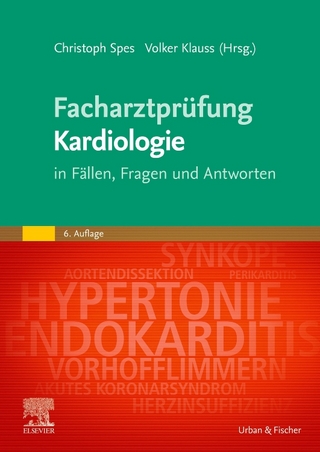
Angiotensin Protocols
Humana Press Inc. (Verlag)
978-0-89603-763-2 (ISBN)
A qualitative leap in the understanding of cardiovascular and n- ral regulation by the renin–angiotensin system, and of the role of this s- tem in tissue damage, has occurred as a result of the many recent advances in molecular genetic techniques. The cloning of the genes for the components of the renin–angiotensin system, the design of specific angiotensin receptor ligands, and the use of embryonic gene targeting te- niques for the creation of mutant strains have established that the renin– angiotensin system is important in blood pressure regulation, ion and fluid homeostasis, and tissue growth and remodeling Further investigation of the mechanisms by which this system p- ticipates in cardiovascular regulation may shed some light on the pat- genesis of several cardiovascular diseases, e. g. , hypertension, congestive heart failure, and chronic renal failure. Despite the promise of this system as a target for therapeutic interventions for these diseases, there are great challenges in the integration of the attempts to close the gap between the traditional literature of medicine and the explosion of information from the new technologies. This book’s title, Angiotensin Protocols, reflects the authors’ strong efforts to translate expert knowledge into easy-to-follow practice. The book opens with introductory chapters, and each specialty section provides detailed methods covering a wide variety of techniques, ranging from genetic manipulation of targeted genes to functional studies of the renin– angiotensin system.
to The Renin-Angiotensin System.- Historical Perspective of the Renin –Angiotensin System.- Three Angiotensin Paradigms in One Patient.- Transgenic and Gene Targeting Methods.- Production and Use of Chimeric Mice.- Genetic Manipulation of the Renin-Angiotensin System Using Cre-loxP-Recombinase.- Systemic Delivery of aTransgene in Intact Animals by a Retroviral Vector.- Antisense Inhibition of the Renin-Angiotensin System.- Analysis of Transcriptional and Translational Mechanisms.- A nalysis of Transcriptional Control Mechanisms I.- Analysis of Transcriptional Control Mechanisms II Techniques for Characterization of trans-Acting Factors.- Analysis of Cytosolic Proteins that Bind to the 5? Leader Sequence of the Angiotensin AT1 Receptor by RNA Electromobility Shift Assay.- In Vitro Translation of the Angiotensin AT1 Receptor in Wheat-Germ Extracts.- Assays For Determination of Mrna Levels.- Quantitation of Angiotensin II Receptors by Competitive Reverse-Transcription Polymerase Chain Reaction.- Analysis of RNA by Northern-Blot Hybridization.- Use of the Ribonuclease Protection Assay for the Analysis and Characterization of Target mRNAs.- In Situ Hybridization.- Assays For Determination of Protein Contents and Enzyme Activity.- Immunohistochemical Detection of Angiotensin II Receptor.- Western Blotting.- Quantification of Angiotensin-Converting Enzyme (ACE) Activity.- Quantification of Angiotensin Peptides.- Radiolabeling of Angiotensin Peptides.- Assays for Radiolabel-Photoaffinity Labeling of Angiotensin Receptors.- Radioligand Binding Assay.- Autoradiographic Localization and Quantification of Components of the Renin-Angiotensin System in Tissues.- Biochemical Studies of The Renin-Angiotensin System.- Measurement of Intracellular Free Calcium Ion Concentration inVascular Smooth Muscle Cells.- Measurement of Phospholipase D Activation in Vascular Smooth Muscle Cells.- Measurement of Cyclic AMP and Cyclic GMP in Xenopus Oocytes Stimulated with Angiotensin II and Atrial Natriuretic Factor.- Measurement of Nitric Oxide Formation.- Measuring Renin Secretion from Juxtaglomerular Cells.- Functional Studies of The Renin-Angiotensin System.- Measurement of Regional Blood Flow in the Kidney Using Laser-Doppler Flowmetry.- Measurement of Renal Tubular Angiotensin II.- The In Vitro Blood-Perfused Juxtamedullary Nephron Technique.- In Vitro Proximal Tubule Perfusion Preparation.- Isolated Resistance Artery Preparation.- Measurement of Vascular Density.- Functional Studies of the Cerebral Circulation.
| Erscheint lt. Verlag | 29.10.2000 |
|---|---|
| Reihe/Serie | Methods in Molecular Medicine ; 51 |
| Zusatzinfo | XIV, 530 p. |
| Verlagsort | Totowa, NJ |
| Sprache | englisch |
| Maße | 152 x 229 mm |
| Themenwelt | Medizinische Fachgebiete ► Innere Medizin ► Kardiologie / Angiologie |
| Studium ► 1. Studienabschnitt (Vorklinik) ► Physiologie | |
| Naturwissenschaften ► Biologie ► Genetik / Molekularbiologie | |
| ISBN-10 | 0-89603-763-0 / 0896037630 |
| ISBN-13 | 978-0-89603-763-2 / 9780896037632 |
| Zustand | Neuware |
| Haben Sie eine Frage zum Produkt? |
aus dem Bereich


